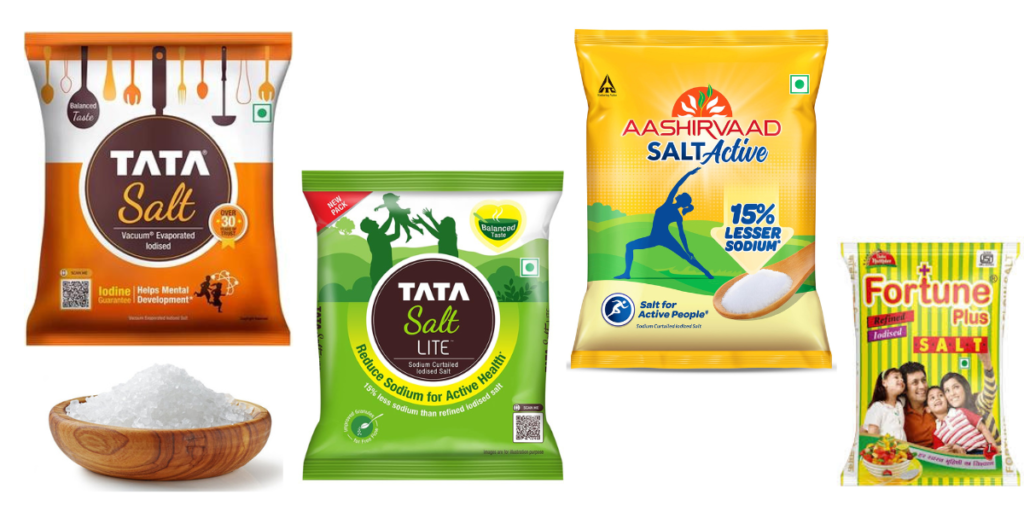Table of Contents
Dry fruits are often regarded as nature’s power-packed snacks, providing a plethora of nutrients in a small package. They are an excellent source of energy, vitamins, minerals, fiber, and antioxidants. For those on a weight loss journey, incorporating dry fruits into their diet can be highly beneficial. This article delves into the various dry fruits that aid in weight loss, their benefits, and answers some frequently asked questions on the topic.
Benefits of Dry Fruits for Weight Loss
Nutrient-Dense
Dry fruits are rich in essential nutrients such as vitamins, minerals, and antioxidants. Despite their small size, they offer a concentrated source of nutrition, making them an ideal snack for those looking to lose weight while maintaining their nutrient intake.
High Fiber Content
Fiber is crucial for weight loss as it promotes satiety and aids in digestion. Many dry fruits, such as figs, prunes, and dates, are high in dietary fiber, which helps in controlling appetite and reducing overall calorie intake.
Healthy Fats
Nuts and seeds, which fall under the category of dry fruits, are excellent sources of healthy fats, particularly omega-3 and omega-6 fatty acids. These fats are essential for maintaining heart health and can also help in managing weight by reducing hunger and preventing overeating.
Low Glycemic Index
Dry fruits generally have a low glycemic index (GI), which means they do not cause a rapid spike in blood sugar levels. Foods with a low GI are beneficial for weight loss as they help in maintaining steady energy levels and reducing hunger pangs.
Rich in Antioxidants
Antioxidants play a vital role in protecting the body from oxidative stress and inflammation, which are often linked to weight gain and obesity. Dry fruits like almonds, walnuts, and raisins are packed with antioxidants, contributing to overall health and weight management.
Best Dry Fruits for Weight Loss
Almonds
Almonds are one of the most popular dry fruits for weight loss. They are rich in protein, healthy fats, and fiber, which help in keeping you full for longer. Studies have shown that consuming almonds can reduce hunger and promote weight loss by reducing overall calorie intake.
Almonds Benefits
- Nutritional Value: Almonds are highly nutritious and packed with essential nutrients. They are a good source of healthy fats, protein, fiber, antioxidants, vitamins (such as vitamin E), and minerals (such as magnesium and copper).
- Heart Health: Almonds have been associated with heart health benefits. They are rich in monounsaturated fats, which can help lower bad LDL cholesterol levels and reduce the risk of heart disease. Additionally, almonds contain antioxidants that may help reduce oxidative stress and inflammation, both of which are linked to heart disease.
- Blood Pressure Management: Regular consumption of almonds may help in managing blood pressure. Almonds are a good source of magnesium, which plays a role in regulating blood pressure levels. Some studies have shown that including almonds in the diet can help lower blood pressure.
- Weight Management: Despite being relatively high in calories, almonds can be a beneficial addition to a weight management plan. They are rich in protein and fiber, which can promote feelings of fullness and help control appetite. Including almonds as part of a balanced diet may help with weight management.
- Gut Health: Almonds may have positive effects on gut health. They contain fiber, which acts as a prebiotic, supporting the growth of beneficial gut bacteria. Additionally, almonds have been found to increase the production of butyrate, a short-chain fatty acid that promotes a healthy gut microbiome.
- Skin Health: Almonds are a good source of vitamin E, which is known for its antioxidant properties. Vitamin E helps protect the skin from oxidative damage caused by free radicals, promoting healthy skin. Almonds may also help improve skin elasticity and hydration.
Walnuts
Walnuts are another excellent choice for those looking to shed extra pounds. They are packed with omega-3 fatty acids, protein, and fiber. Walnuts can help in reducing hunger and improving metabolism, making them a perfect addition to a weight loss diet.
Walnuts Benefits
- Heart Health: Walnuts have been associated with heart health benefits. They are rich in omega-3 fatty acids, which can help reduce inflammation and improve heart health. Studies have shown that incorporating walnuts into a heart-healthy diet may help lower blood pressure and reduce bad LDL cholesterol levels.
- Brain Health: Walnuts are often referred to as “brain food” due to their potential benefits for brain health. They contain nutrients like omega-3 fatty acids, vitamin E, folate, and antioxidants, which may help reduce oxidative stress, improve brain signaling, and support neuroprotection. Some studies suggest that walnuts may play a role in preventing oxidative damage and inflammation in the brain.
- Gut Health: Research suggests that walnuts may have a positive impact on gut health. A study found that adding walnuts to the diet of overweight adults enhanced beneficial gut bacteria associated with reduced blood pressure and total cholesterol levels.
- Antioxidant Properties: Walnuts are rich in antioxidants, including polyphenols and vitamin E. These antioxidants help protect the body against oxidative stress and inflammation, which are associated with various chronic diseases.
- Sperm Health: Animal studies suggest that walnuts may have benefits for male fertility. Eating walnuts has been shown to protect sperm by reducing oxidative damage to their membranes.
Pistachios
Pistachios are low in calories but high in protein, fiber, and healthy fats. They are known to promote satiety and aid in weight management. The act of shelling pistachios also slows down consumption, helping you eat mindfully and reduce calorie intake.
Pistachios Benefits
- Nutritional Value: Pistachios are packed with nutrients. They contain healthy fats, protein, fiber, and antioxidants. They are also a good source of minerals like copper and magnesium, as well as vitamins like vitamin B6.
- Heart Health: Pistachios have been associated with heart health benefits. They are high in monounsaturated and polyunsaturated fats, which can help lower bad LDL cholesterol levels. Additionally, pistachios contain antioxidants that may help reduce inflammation and oxidative stress, both of which are linked to heart disease.
- Eye Health: Pistachios are rich in antioxidants like lutein and zeaxanthin, which are beneficial for eye health. These antioxidants may help protect against age-related macular degeneration and other eye diseases.
- Weight Management: Despite being relatively high in calories, pistachios can be a helpful addition to a weight management plan. They are rich in protein and fiber, which can promote feelings of fullness and help control appetite.
- Gut Health: Pistachios contain both soluble and insoluble fiber, which can support a healthy digestive system. The fiber in pistachios acts as a prebiotic, promoting the growth of beneficial gut bacteria and contributing to overall gut health.
- Antioxidant Properties: Pistachios are among the most antioxidant-rich nuts available. The antioxidants in pistachios can help protect the body against oxidative stress and inflammation, which are associated with various chronic diseases.
Cashews
Cashews are rich in healthy fats, protein, and essential minerals like magnesium and zinc. They provide a creamy texture and a satisfying taste, making them a great snack for weight loss. However, they should be consumed in moderation due to their higher calorie content compared to other nuts.
Cashews Benefits
- Nutritional Value: Cashews are rich in protein, healthy fats, and antioxidants such as polyphenols. They also contain essential nutrients like vitamins and minerals, including copper, magnesium, zinc, and iron.
- Heart Health: Cashews contain heart-healthy monounsaturated and polyunsaturated fats, including oleic and palmitoleic acids. When used to replace foods high in sugars and low-fiber starches, cashews have been shown to lower bad LDL cholesterol, which is associated with heart disease.
- Digestive Health: Cashews are a good source of dietary fiber, which can support healthy digestion and prevent constipation. Including cashews in your diet can help increase your fiber intake.
- Antioxidant Properties: Cashews contain antioxidants such as polyphenols, which can help protect the body against oxidative stress and inflammation. These antioxidants may have potential health benefits, although more research is needed to confirm their specific effects.
- Bone Health: Cashews contain minerals like calcium, magnesium, and potassium, which are important for maintaining healthy bones. These minerals, along with a low sodium intake, are associated with protection against bone demineralization.
- Weight Management: Cashews can be a satisfying snack option due to their protein and healthy fat content. Including them in a balanced diet can help promote feelings of fullness and potentially aid in weight management.
Dates
Dates are a sweet and nutritious dry fruit that can be an excellent alternative to sugary snacks. They are high in fiber, which aids in digestion and helps in controlling appetite. Dates also provide a quick energy boost, making them a perfect pre-workout snack.
Dates Benefits
- Fiber-Rich: Dates are high in fiber, with almost 7 grams of fiber in a 3.5-ounce serving. Including dates in your diet can help increase your fiber intake, which can benefit your digestive health by preventing constipation and promoting regular bowel movements.
- Antioxidant Properties: Dates are rich in antioxidants, such as phenolic compounds and flavonoids. These antioxidants can help protect the body against oxidative stress and inflammation, potentially reducing the risk of chronic diseases.
- Heart Health: Dates may have beneficial effects on heart health. They contain potassium, which is essential for maintaining healthy blood pressure levels. Additionally, the fiber and antioxidants in dates may help reduce the risk of heart disease.
- Nutrient-Dense: Dates are packed with essential nutrients. They are a good source of minerals like potassium, calcium, magnesium, and iron. Dates also provide vitamins and other beneficial compounds that can contribute to overall health.
- Potential Anti-Aging Benefits: Dates contain phytohormones, which are plant hormones that may have anti-aging benefits for the skin. These phytohormones are sometimes used in skincare products. Consuming dates may provide some of these benefits.
- Potential Immune-Boosting Effects: Medjool dates, in particular, are an excellent source of phytonutrients, which are plant compounds that may have health benefits. Studies suggest that these compounds in dates can stimulate the immune system, reduce inflammation, prevent DNA damage, and improve hormone regulation.
Figs
Figs are rich in fiber, vitamins, and minerals. They promote digestive health and help in reducing hunger. Figs are also low in calories, making them a suitable option for those aiming to lose weight.
Figs Benefits
- Nutritional Value: Figs are a good source of essential nutrients, including vitamins, minerals, and fiber. They contain minerals such as potassium, calcium, magnesium, and iron, which are important for various bodily functions.
- Digestive Health: Figs are rich in dietary fiber, which can help promote healthy digestion and prevent constipation. The fiber in figs adds bulk to the stool and helps regulate bowel movements.
- Antioxidant Properties: Figs contain antioxidants, such as phenolic compounds and flavonoids, which can help protect the body against oxidative stress and inflammation. These antioxidants may have potential health benefits, including reducing the risk of chronic diseases.
- Blood Sugar Control: Figs have a low glycemic index, which means they have a minimal impact on blood sugar levels. This makes them a suitable fruit option for individuals with diabetes or those looking to manage their blood sugar levels.
- Heart Health: Figs may have beneficial effects on heart health. They contain potassium, which is essential for maintaining healthy blood pressure levels. Additionally, the fiber and antioxidants in figs may help reduce the risk of heart disease.
Raisins
Raisins are dried grapes that offer a concentrated source of nutrients. They are high in fiber, vitamins, and antioxidants. Raisins can help in reducing hunger and providing a quick energy boost, making them a great snack for weight loss.
Raisins Benefits
- Nutritional Value: Raisins are a good source of essential nutrients, minerals, and energy in the form of calories and sugars. They contain beneficial minerals such as iron, copper, magnesium, and potassium, which can help balance acidity levels in the stomach.
- Digestive Health: Raisins contain soluble fibers that can add bulk to the stool and promote regularity, thus aiding in digestion.
- Antioxidant Properties: Raisins contain antioxidants that may help bolster cardiovascular function and improve oral health. They also have prebiotic properties that can promote gut health.
- Potential Disease Prevention: Some studies suggest that raisins may have anticarcinogenic properties due to the presence of catechins, which are polyphenol compounds with antioxidant properties. Additionally, raisin consumption may have favorable effects on colon function and gut microbiota, and may potentially benefit specific diseases such as cancer and Alzheimer’s disease.
- Blood Pressure Control: Raisins may help regulate blood pressure. They contain compounds that can help maintain a healthy oral pH balance and inhibit bacteria that cause dental cavities. Raisins are also known to help with long-term blood sugar control and may even lower blood pressure.
How to Incorporate Dry Fruits into Your Diet
As Snacks
Dry fruits can be consumed as snacks between meals. A handful of almonds, walnuts, or pistachios can help in curbing hunger and preventing unhealthy snacking.
In Breakfast
Adding dry fruits to your breakfast can boost your energy levels and keep you full for longer. You can sprinkle them over oatmeal, yogurt, or smoothies.
In Salads
Incorporating dry fruits into salads can enhance their nutritional value and add a delightful crunch. Try adding almonds, walnuts, or raisins to your favorite salads.
In Baking
Dry fruits can be used in baking to add natural sweetness and nutrition. You can add them to muffins, bread, or cookies for a healthy twist.
As Toppings
Dry fruits make excellent toppings for various dishes. Sprinkle them over desserts, cereals, or even savory dishes to enhance flavor and nutrition.
FAQs About Dry Fruits and Weight Loss
Which Dry Fruit is Best for Weight Loss?
Almonds are considered one of the best dry fruits for weight loss. They are rich in protein, healthy fats, and fiber, which help in keeping you full and reducing overall calorie intake. Studies have shown that regular consumption of almonds can aid in weight loss and improve metabolic health.
Which Nuts Reduce Belly Fat?
Walnuts are known to be effective in reducing belly fat. They are rich in omega-3 fatty acids, which have been shown to reduce inflammation and promote fat loss, particularly around the abdominal area. Including walnuts in your diet can help in managing weight and reducing belly fat.
Can I Eat Dry Fruits at Night for Weight Loss?
Yes, you can eat dry fruits at night for weight loss. However, it is important to consume them in moderation and choose the right types. Almonds and walnuts are good options as they are high in protein and healthy fats, which can keep you full and prevent late-night snacking. Avoid dry fruits that are high in sugar, such as dates and raisins, before bedtime.
Which Dry Fruit is Good for Skin Glow?
Almonds and walnuts are excellent dry fruits for promoting skin health and glow. They are rich in antioxidants, vitamins, and healthy fats that nourish the skin and protect it from damage. Regular consumption of these dry fruits can improve skin texture and give it a healthy glow.
How Many Dry Fruits to Eat Per Day?
The recommended daily intake of dry fruits varies depending on individual dietary needs and goals. However, a general guideline is to consume around 1-2 ounces (28-56 grams) of mixed dry fruits per day. This can include a handful of almonds, walnuts, pistachios, or other dry fruits. It is important to consume them in moderation as they are calorie-dense and can contribute to weight gain if overeaten.
Conclusion
Dry fruits are a nutritious and convenient snack that can be highly beneficial for weight loss. They are rich in essential nutrients, fiber, healthy fats, and antioxidants, which promote satiety, improve metabolism, and support overall health. Incorporating a variety of dry fruits into your diet can help you achieve your weight loss goals while providing numerous other health benefits. Remember to consume them in moderation and choose unsweetened, natural varieties to maximize their benefits.






